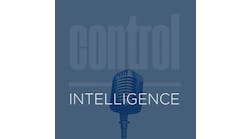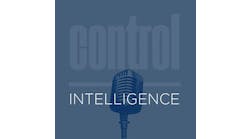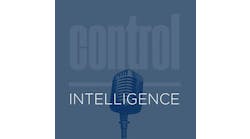Bob Lowe, Control System Integrators Association
The greatest value in becoming certified by the Control System Integrators Association (CSIA) is the knowledge and discipline acquired during the preparation, not in the plaque awarded upon successful completion, according to members who have become certified.
CSIA certification demonstrates a system integration firm’s commitment to best practices for business management. In 1994, when the nonprofit trade association was created, the profession of system integration was relatively new. The association now has 84 certified member companies. Certified members are headquartered on every continent except Antarctica.
Many of the founding members had worked in manufacturing, and, while they were well-versed technically, they were new to managing a business. I was a system integration company owner, and I’ve served as executive director since 2009. To grow and sustain a successful integration company that meets clients’ current and future requirements, integrators need to develop good business and management skills.
CSIA provided members a forum to share best practices for business management and benchmark their progress against their peers. By sharing information on best practices, the members were able to raise the bar for the growing profession of independent system integrators.
The Best Practices and Benchmarks Manual, first published in 1997, is now in its fourth release. Best practices cover a wide range of management issues, including human resources, financial reporting, marketing, system development lifecycle and client service. As technology develops and the demands for system integration services grow, the best practices have evolved to offer members guidance. The best practices cover many functions that end-user clients might not think about when selecting an integrator, such as computer system backups and disaster recovery plans.
The certification program began in 2001 for members who wanted to demonstrate their mastery of the best practices. To become certified, members must pass an audit conducted by an independent auditor. Of the manual’s 300 guidelines, 79 criteria that CSIA members and their clients consider necessary for operating a successful control systems integration company are measured. If the member doesn’t pass the audit, the auditor and the integrator decide what corrective actions are needed to pass the audit.
See Also: Machine Builders Vs. Integrators
Companies that have successfully completed the audit and become certified are encouraged to use the certified logo in their marketing and on proposals. Certified companies also are clearly identified on the Industrial Automation Exchange, CSIA’s online buyers guide for end-user clients to find integrators and products.
To maintain their status, certified members are re-audited every three years. “The CSIA certification process was and still is an important part of our quality system and our corporate culture,” says Bill Pollock, president of Optimation Technology, headquartered in Rush, N.Y., with certified branch offices in Boston, Houston and Philadelphia.
The association offers several resources to help companies prepare for the audit, including checklists, workbooks and a mentoring program. A two-day workshop will be held April 28 – April 29, just prior to the 2015 CSIA Executive Conference in Washington, D.C. The conference is the premiere event for the system integration industry, with three days of speakers, educational sessions and networking events, including an industry expo.
Luigi De Bernardini, CEO, Autoware, a system integration firm based in Vicenza, Italy, learned about CSIA certification when he attended his first conference in 2009. His company reorganized to align business functions with the CSIA best practices. Autoware became CSIA certified in 2014.
“I have to say that our company today is very different,” says De Bernardini. “This was possible only with the support of all the CSIA members. I believe no other community has the same willingness to share information and experience and help each other to become better.”
A commitment from top leadership is necessary for successful audit preparation and completion. Most integrators appoint one or two senior managers to lead the audit preparation. Assigning work teams to take each of the nine sections of the Best Practices manual serves two purposes—reducing the time commitment and increasing employee buy-in.
Client work always takes priority. If you don’t have good internal leadership and the support of the company owner, it’s easy for audit preparation to fall to the bottom of the to-do list.
People often ask how CSIA certification differs from ISO 9000. CSIA certification focuses on successful management of an independent control system integration business. ISO certification focuses on customer satisfaction and the quality of products and services delivered. The two certifications complement one another. We think of ISO 9000 certification as the bronze level and CSIA certification takes an integration business up to the gold level.
System integrators can demonstrate technical proficiency by becoming certified through various vendor programs, such as those offered by Phoenix Contact and Inductive Automation, as well as through trade associations such as ISA, OPC Foundation and MESA.
Member companies often start the process to become certified because a vendor or client has required certification. Later, they say, “Certification simply makes us a better company. It helps us to continuously improve our practices.”
For example, NOFFZ Technologies pursued certification because of its relationship with National Instruments. “National Instruments Select was just the trigger,” says Markus Solbach, owner of NOFFZ, based in Germany. “The outside expertise we gained during the process was the most important factor.”
Finally, De Bernardini says, “Becoming certified is not an easy task, but it is worth it. Getting certified was an important milestone, but not the end of the trip. There's no limit in improving the best practices adoption to improve the business.”
Bob Lowe is executive director of CSIA. Contact him at 717/371-0490 or [email protected].




